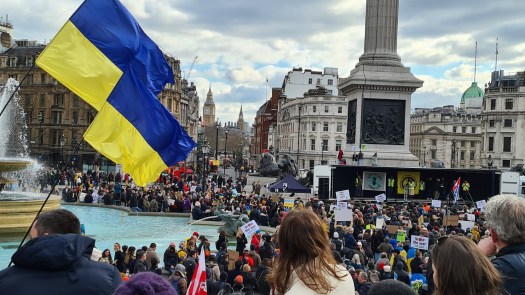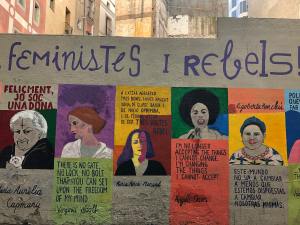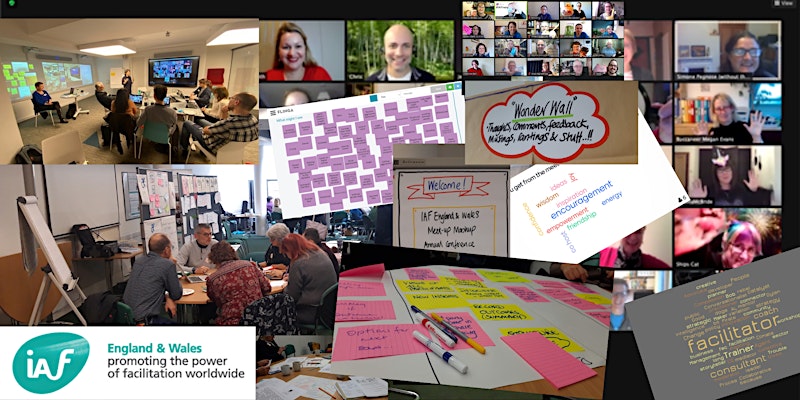
What does feminism bring to facilitation, and what does feminist facilitation look like? How can I ensure that my own practice as a professional facilitator is more effectively and explicitly feminist, anti-racist and anti-oppressive?
This longer-read post tells the story of why and how I have been exploring feminist, anti-racist and anti-oppressive facilitation this past year and more, what I have learned and how I am starting to apply it.
Are you practicing or exploring feminist facilitation yourself, or are you interested to do so? Please share any reflections, questions or links in a comment below, below, or contact me.
Why and how I have been exploring feminist facilitation
I wrote last September in Reflecting on a year of freelance facilitation online, and looking ahead:
I have been challenged by the Black Lives Matter movement and other recent manifestations and responses to systemic injustice and oppression, and by clients who have been similarly challenged, to reflect on how I might ensure that my own practice is more effectively and explicitly anti-racist, feminist and anti-oppressive, and to commit to working on that.
One of the clients I was referring to was Amnesty International, with whom I have facilitated several regional and global governance events since 2020, including last year’s 2021 Europe & Central Asia Regional Forum and Global Assembly – see Who I work with and Recommendations & case studies. Discussions of anti-racism and feminist leadership have featured prominently in these events, and we sought to model an explicitly feminist and anti-racist approach to their design and facilitation.
In Reflecting on Amnesty International’s Global Assembly 2021, international member representative and youth activist Dumiso Gatsha of Botswana wrote powerfully of her vision of “the kind of Amnesty I want to continue to be a part of; one that lives and advocates what it truly means to be born of dignity through solidarity and action for those who don’t have the power”, and of the “feminist leadership approach to which our movement committed” at that Assembly.
In preparing for the Europe & Central Asia Regional Forum earlier that year, I had searched online for references to feminist facilitation and resources that I might draw on as we sought to uphold that commitment to feminist leadership and anti-racism in our design and facilitation. I did not find much, but what I found on twitter (to my surprise, above) led me back to an earlier exchange in which Leila Billing of We Are Feminist Leaders had asked me in 2019 if I could share any such references and resources with her! We had met a few years before that when I had provided ToP facilitation training to Girls Not Brides.
I concluded that I might need to do more to find what I was looking for than just a quick online search, but also that there were others out there who I might learn from and with – even if none of them had yet shared an easy-to-find online beginners guide to feminist facilitation…
Those that I have learned with and from since then include all those with whom I have worked at Amnesty International during this period, including my co-facilitators for those contracts – most notably and repeatedly Orla Cronin and Marie Dubost. They also include several other clients and prospective clients during this period, my IAF mentees and the young social justice activists who have accepted my offer of free facilitation coaching. They include IAF colleagues of the Social Inclusion Facilitators Special Interest Group, ICA colleagues of the US ToP Network in particular and fellow facilitators of the Involve Practitioners Network. They also include a number of authors and podcasters that I have discovered along the way, not least adrienne maree brown and other black feminist contributors to Holding Change: The Way of Emergent Strategy Facilitation and Mediation.
 What has been most helpful for me, however, has been participating this year in the 12-week online feminist leadership development programme of We Are Feminist Leaders, led by Leila Billing and Natalie Brook. This has provided me with a comprehensive framework by which to understand what feminism brings to leadership, and thus to facilitation, and also a powerful demonstration of what feminist, anti-racist and anti-oppressive facilitation can look like in practice. I am grateful to Leila and Natalie, and especially to the cohort of mostly young feminist leaders with whom I shared the programme from whom I learned much too.
What has been most helpful for me, however, has been participating this year in the 12-week online feminist leadership development programme of We Are Feminist Leaders, led by Leila Billing and Natalie Brook. This has provided me with a comprehensive framework by which to understand what feminism brings to leadership, and thus to facilitation, and also a powerful demonstration of what feminist, anti-racist and anti-oppressive facilitation can look like in practice. I am grateful to Leila and Natalie, and especially to the cohort of mostly young feminist leaders with whom I shared the programme from whom I learned much too.
What I have learned
A comprehensive framework by which to understand what feminism brings to leadership, and thus to facilitation
What I learned in those 12 weeks can be summed up in large part by Leila in her earlier tweet summarizing what she had found herself, that “basically power analysis is key“.
The programme covers key concepts and principles behind feminist leadership, with particular emphasis on intersectionality and different dimensions of power and privilege, and key practical aspects including power sharing and self & collective care. Much of the power analysis was familiar to me from my work in international development and human rights, although I was struck by how far the theory has progressed since my own development studies MA of 25 years ago now. Much of the practice would be familiar to any good professional facilitator, however what I found most interesting and valuable was what I found to be largely absent or at best implicit in much professional facilitation – namely power, and politics & purpose.
 In Feminist Leadership for Social Transformation: Clearing the Conceptual Cloud, Srilatha Batliwala identifies four essential components of feminist leadership which she presents in the Feminist Leadership “Diamond” (right).
In Feminist Leadership for Social Transformation: Clearing the Conceptual Cloud, Srilatha Batliwala identifies four essential components of feminist leadership which she presents in the Feminist Leadership “Diamond” (right).
Batliwala describes values as ‘the ethical norms that guide behaviour’ and principles as ‘norms that guide action’. These are thus broadly analogous to the IAF Statement of Values & Code of Ethics for facilitators, described by IAF as the ‘values and ethical principles that guide our actions’. She describes practices as being ‘about ways of doing and enabling a myriad of things’. These are therefore broadly analogous to the IAF Core Competencies, ‘the basic set of skills, knowledge, and behaviours that facilitators must have in order to be successful facilitating in a wide variety of environments’.
So, what do we notice when we compare Batliwala’s framework for understanding feminist leadership with the IAF’s framework for guiding and certifying professional facilitation?
What I think the two frameworks clearly share at these levels of principles & values and practices are a belief in ‘the inherent value of the individual’ (IAF) and in the value of ‘consultative, collective, transparent and accountable decision-making’ (SB), and ‘Respect, Safety, Equity, and Trust’ recognising ‘the culture, rights, and autonomy of the group’ and seeking to ‘promote equitable relationships’ and ‘honour and recognise diversity, ensuring inclusiveness’ (IAF). Like the feminist leadership framework, the IAF framework recognises diversity and difference, the potential for conflict and risks to welfare and dignity and the importance of ‘a safe environment for conflict to surface’.
What I think feminist leadership brings to facilitation, that the IAF framework lacks, is a clear recognition of the structural and systemic sources of inequity of power and privilege in wider society, how these may be reflected in groups and how they must be addressed in order to achieve broader goals of human rights, peace and a healthy planet – even just to achieve an inclusive participatory meeting or process. This broader social context features prominently even in the principles & values and practices quadrants of Batliwala’s Diamond of feminist leadership, and warrants a further quadrant each for power and for politics & purpose. I did not find the words power, privilege, politics or purpose in the IAF Statement of Values & Code of Ethics or the IAF Core Competencies, except purpose in relation to the aims of a meeting and privilege in relation to conflict of interest.
A key emphasis of the IAF framework that is absent from that of feminist leadership is the ‘impartial’ role that facilitators are called upon to fill ‘in service to our clients… [including] the groups we facilitate’, involving ‘stewardship of process and impartiality toward content’. I argued in my last post Facilitator neutrality in the context of war and oppression in March that facilitation is not a neutral practice or profession at all, and that as professional facilitators we must stand up against systems and structures of power, discrimination and oppression, violence and war. I think that the missing feminist leadership quadrants of power and politics & purpose provide clues to how we might do that.
Power
“Leadership is first and foremost about power – it is about holding power, exercising power, and changing the distribution and relations of power… Feminist leadership means functioning with a greater consciousness not only of others’ but also of one’s own power” – Srilatha Batliwala, Feminist Leadership for Social Transformation: Clearing the Conceptual Cloud
During the programme we drew in particular on a power analysis outlined by Lisa VeneKlasen and Valerie Miller in A New Weave of Power, People & Politics: The Action Guide for Advocacy and Citizen Participation. This identifies four ‘expressions’ of power (familiar to me from Naila Kabeer’s 1994 Reversed Realities), namely Power Over, Power With, Power To and Power Within; three ‘realms’ in which power is expressed, namely Public, Private and Intimate; and three ‘levels’ of political power, namely Visible, Hidden and Invisible. We looked also at the notion of ‘deep structures’ in organisations, “the hidden sites and processes of power and influence… where the culture of the organisation is embedded and reproduced“, a locus of Invisible power and where Power Under is often expressed (Batliwala).
Suffice to say here that the analysis suggests that power is available to everyone to a greater or a lesser degree, determined in large part by the nature and degree of each individual’s intersecting privilege, and that power can be exercised in such a way as to enhance or diminish the power and privilege of others – and so to respect their rights or to violate them. Batliwala argues that “Feminist leadership will strive to make the practice of power visible, democratic, legitimate and accountable, at all levels and in both private and public realms.”
 To explore intersectionality, the way that people’s identities and privilege intersect, and so their sources of power and inequality, we drew in particular on the CRIAW-ICREF Intersectionality Wheel (right).
To explore intersectionality, the way that people’s identities and privilege intersect, and so their sources of power and inequality, we drew in particular on the CRIAW-ICREF Intersectionality Wheel (right).
If we are to meaningfully “recognise barriers to participation and ways to address them” in order to “honour and recognise diversity, ensuring inclusiveness“, as the IAF Core Competencies (C2) expect of professional facilitators, then this is where such “power analysis is key“.
Politics & purpose
“I define feminist leadership as a process of transforming ourselves, our communities, and the larger world, to embrace a feminist vision of social justice. It’s the process of working to make the feminist vision of a non-violent, non-discriminatory world, a reality (…) It’s about mobilizing others around this vision of change” – Srilatha Batliwala, The Feminist Leadership project: a series celebrating feminist leaders
Batliwala defines feminist leadership here in terms of its feminist political purpose, rather than in terms of its principles & values or its practices. It is perhaps appropriate that the purpose of a professional association can be seen to be non-political, as I think the IAF Vision and Mission can. Perhaps also then it is appropriate for IAF, in contrast, to define professional facilitation in terms of its principles and practices in the IAF Statement of Values & Code of Ethics and IAF Core Competencies.
Clarity of desired outcomes is central to the professional facilitators’ task, however, as made clear in the IAF Core Competencies (D) ‘Guide Group to Appropriate and Useful Outcomes’. In a world that is inescapably political, I would argue that professional facilitators have both a right and a responsibility to be transparent and accountable to their own political purpose of their professional facilitation practice, as well as to the desired outcomes of each particular facilitated process. Many facilitators already are, not least those who apply facilitation in their practice of feminist leadership, anti-racism and social inclusion, and in social justice movements more broadly.
“Enabling people to bring about positive change in their organisations and communities through facilitation… [toward] a just and sustainable world for all” – ICA:UK Misson & Vision
IAF was founded in 1994 by a global network of 70 ICA ToP facilitators, and the practice and provision of training in ICA’s Technology of Participation facilitation methodology remains central to the work of ICAs around the world. For ICA and for ToP facilitators, facilitation is seen as a tool of transformational change – toward a mission and vision described by ICA:UK as “enabling people to bring about positive change in their organisations and communities through facilitation” toward “a just and sustainable world for all“.
I have continued to regard that as my own purpose as a professional facilitator since I helped to articulate it more than 20 years ago as part of a 2001 online Focused Conversation on ICA:UK values. I recognise it as a political purpose, and therefore that ‘power analysis is key‘.
A powerful demonstration of what feminist, anti-racist and anti-oppressive facilitation can look like in practice
Many if not most of the IAF Core Competencies were in evidence in the design and facilitation of the We Are Feminist Leaders programme. Notable exceptions were D3. ‘Guide the group to consensus’ and F3. “Model neutrality”, as consensus and content neutrality were not really relevant or necessary in such a facilitated group process of individual learning and leadership development. What I found particularly noticeable was how attention to power and privilege helped to ‘honour and recognise diversity, ensuring inclusiveness’ (IAF Core Competence C2); and how practical aspects of feminist leadership such as power sharing and self & collective care were demonstrated.
Applying the concepts and tools of feminist leadership together to our own and each other’s lived experience helped to ‘create a climate of trust and safety’ and ‘recognise barriers to participation and ways to address them’. Power sharing was demonstrated by means of effective co-facilitation by the programme leaders, and by means of the very participatory process by which members of the group themselves exercised leadership together throughout the programme.
Self & collective care was demonstrated by diligent application of the ’10 principles of a feminist classroom’ that were shared at the outset and referred to throughout. These included the importance of mutual learning and building a learning community; attention to lived experience, to feelings as much as thoughts, and to our own and each other’s power and privilege and how they affect our positions and perspectives; courage and compassion in sharing and challenging in safety, and in taking action on what we learn in pursuit of social justice beyond the classroom. Perhaps most important, that “the feminist classroom will not be perfect, because we are not perfect”.
Even as an older white man among a diverse group of mostly younger women, I felt entirely welcome and included myself – although I had felt some trepidation before about signing up for a programme ‘for emerging leaders’. I think I can credit my own experience of inclusion to the very welcoming and inclusive space that was created, as well as to my own ‘unique circumstances of power, privilege and identity’ (CRIAW) that can make it relatively easy for me to feel welcome and included.
The privilege of my own unique circumstances was brought home to me most powerfully when we reflected on how we can care for our own and each other’s well-being in the face of the trauma that can be experienced by those resisting systemic oppression or inequality, and struggling to make a non-violent, non-discriminatory world a reality. I do not feel traumatized by my own work toward a just and sustainable world for all, and generally I do not struggle with caring for myself and others – because generally I can expect to be cared for by society, and it is not violence and discrimination against me that is standing in my way.
How I am starting to apply it
I seek to take a feminist and anti-racist approach to my work, informed by an understanding of the way people’s intersecting identities (age, race, sexuality, gender, class, ability etc.) impact the ways that they have power and privilege, and the ways they face marginalization and discrimination. Mindful of such inequalities, I strive to create a safe environment that is inclusive of diverse lived experience, and ensure that even the most excluded have an equal voice and opportunity to contribute.
I recognize that my own intersecting identities as an older, anglophone, white British gay man (middle class and able-bodied) may position me to be better able to achieve those goals with some groups than with others. With clients and groups for whom I may not be best positioned to facilitate myself, I recommend others and/or offer to partner or co-facilitate with others as appropriate.
I have included the above text on my web page How I work, and I now use or adapt it as appropriate in proposals to clients and in contracting and design conversations with clients and groups. I have recommended clients to others, and partnered and co-facilitated with others, where I have realised that I was not best positioned to facilitate with a particular group myself.
I have started to offer free facilitation coaching to young people using facilitation in their work for peace, climate justice, gender equity or anti-racism, or otherwise in response to systemic injustice and oppression or toward achieving a just and sustainable world for all – in order to support and share power with them, and to be inspired and learn from their experience; and also to further diversify the network of colleagues who I am able to recommend to clients and/or offer to partner or co-facilitate with.
 I have started to draw on principles and practices of feminist leadership and anti-racism in how I contract with groups and invite them to contract with each other. This invitation to guide behaviour in sessions, for example, was first developed for Amnesty’s ECA Regional Forum in 2021, and then adapted for use at their 2021 Global Assembly and 2022 ECA Regional Forum as well. It drew on insights of a capacity building session led by my co-facilitator Orla Cronin, which itself drew on ActionAid’s Ten Principles of Feminist Leadership.
I have started to draw on principles and practices of feminist leadership and anti-racism in how I contract with groups and invite them to contract with each other. This invitation to guide behaviour in sessions, for example, was first developed for Amnesty’s ECA Regional Forum in 2021, and then adapted for use at their 2021 Global Assembly and 2022 ECA Regional Forum as well. It drew on insights of a capacity building session led by my co-facilitator Orla Cronin, which itself drew on ActionAid’s Ten Principles of Feminist Leadership.
I shall continue this exploration in professional development with colleagues and in my professional practice with clients and groups. Among an abundance of professional development opportunities, I am particularly looking forward to joining an Action Learning Set with other ’emerging’ feminist leaders who have completed the 12-week We Are Feminist Leaders programme. I am looking forward to learning also in my volunteer role with the (predominately older, white, gay male) Gay Outdoor Club as it works to implement a new Inclusion and Diversity Policy – toward a more diverse and inclusive GOC, “for everyone in the LGBTQI+ community who wants to enjoy outdoor activities”.
As I continue to educate myself, I hope to be better able to help to educate my clients and groups as well – on how we must all be prepared to invest time and budget, as well as creativity, courage and compassion, to address power and privilege as we must if we truly mean to ‘recognise barriers to participation and ways to address them’ in order to ‘honour and recognise diversity, ensuring inclusiveness’.
Are you practicing or exploring feminist facilitation yourself, or are you interested to do so? Please share any reflections, questions or links in a comment below, below, or contact me.
See also about me, how I work, who I work with and recommendations & case studies, and please contact me about how we might work together.
Like this:
Like Loading...
 Monday, 16 January 2023, 13:00-14:00 UK time
Monday, 16 January 2023, 13:00-14:00 UK time These are the questions that have guided my own exploration of feminist, anti-racist and anti-oppressive facilitation this past couple of years.
These are the questions that have guided my own exploration of feminist, anti-racist and anti-oppressive facilitation this past couple of years. These sessions are free and open for anyone to attend. The session will last 60 minutes and consist of a facilitated conversation using the ToP Focused Conversation (ORID) method, followed by a brief run through of the method used. The sessions are run by different members of the ICA:UK facilitation community, including lead trainers, trainee trainers, and past participants of our courses in their own style, around topics they have chosen.
These sessions are free and open for anyone to attend. The session will last 60 minutes and consist of a facilitated conversation using the ToP Focused Conversation (ORID) method, followed by a brief run through of the method used. The sessions are run by different members of the ICA:UK facilitation community, including lead trainers, trainee trainers, and past participants of our courses in their own style, around topics they have chosen.
























